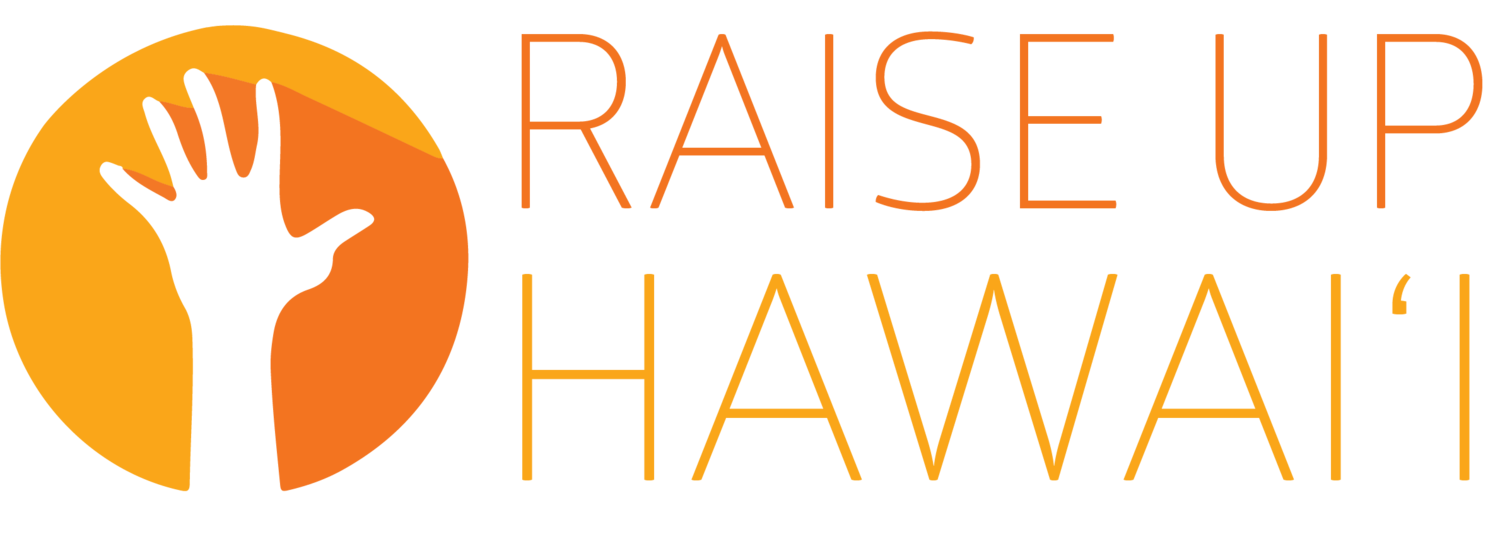Hawaiʻi Supports a Living Wage
There are lots of reasons to support an increase in the minimum wage to a livable level. When we ensure people earn enough to thrive, we strengthen our businesses, provide dignity to our workers, and invest in our childrens' futures.
Why Support a Living Wage?
The economic benefits of raising the wage to a livable level are clear: When people can afford their basic needs, taxpayers save money; when consumers have extra income, they spend it back into the local economy; when workers have their dignity, they strengthen small businesses; and when parents have time to spend with their children, we invest in the future of our society.
A Living Wage Is Good For Business!
Working 40 hours a week at the current minimum wage of $10.10 per hour earns a worker just $21,000 per year. In 2019, the self-sufficiency level in Hawaiʻi requires $17 per hour, or roughly $35,000 per year, at the bare minimum.
$10.10 Is Not Enough!
Licensed social worker Marissa Buendicho works in the behavioral health department at Kokua Kalihi Valley health clinic. Her patients cite lack of financial stability as a leading cause of depression. When we talk about a livable wage, we're talking about quality of life.
Marissa Buendicho
Small business owner Erik Hay set out to prove that a business that gaurantees a living wage can, and will, be profitable. This past year his company, South Shore Design Concepts, made $4 million in sales. A company should be concerned with more than just making profit.
Erik Hay
Hawaii Catholic Conference Executive Director Eva Andrade supports a living wage because she loves seeing people do good work in the community. But when 48% of Hawaii families are struggling to put food on the table, even after working multiple minimum wage jobs, they don't have the capacity to do anything beyond subsisting.
Eva Andrade
Dr. Bob Pantell is the Medical Director for the Child Advocacy & Protection Center at Kapiʻolani Medical Center for Women & Children. We now know that poverty is the number one reason that children experience poor health. The stresses of poverty make children more susceptible to chronic diseases as they get older.
Bob Pantell
Maria Rallojay is a junior at the University of Hawaiʻi at Mānoa, with a passion for helping the homeless and dream of opening her own law firm. But without a living wage, she will be unable to pay her tuition consistently or graduate on time.
Maria Rallojay
Executive Director of Mental Health America of Hawaiʻi, Trisha Kajimura, explains how a living wage reduces stress on the workforce leading to more productivity and a happier, healthier community to support workers and their families.
Trisha Kajimura
Nate Hix is a mortage broker who, too often, is forced to tell hard working families that they don't earn enough to qualify for a home, despite working multiple jobs to try and make ends meet. When each and every one of our neighbors is able to make ends meet, we all benefit.
Nate Hix
Professional photographer Melanie Tjoeng was born in Australia, where wages are high and healthcare is universally-provided to all citizens, permanent residents and visitors. Coming to Hawaiʻi, it was a shock for her to realize that many people who work multiple part-time jobs, or participate in the gig labor economy as freelancers, don't receive health insurance.
Melanie Tjoeng
Reverend David Gierlach supports a living wage because the greatest calling in any faith tradition is to help the most vulnerable among us, and today the most vulnerable are the working poor. If you're working full time and the most you can afford is a tent on the street, something is seriously wrong.
